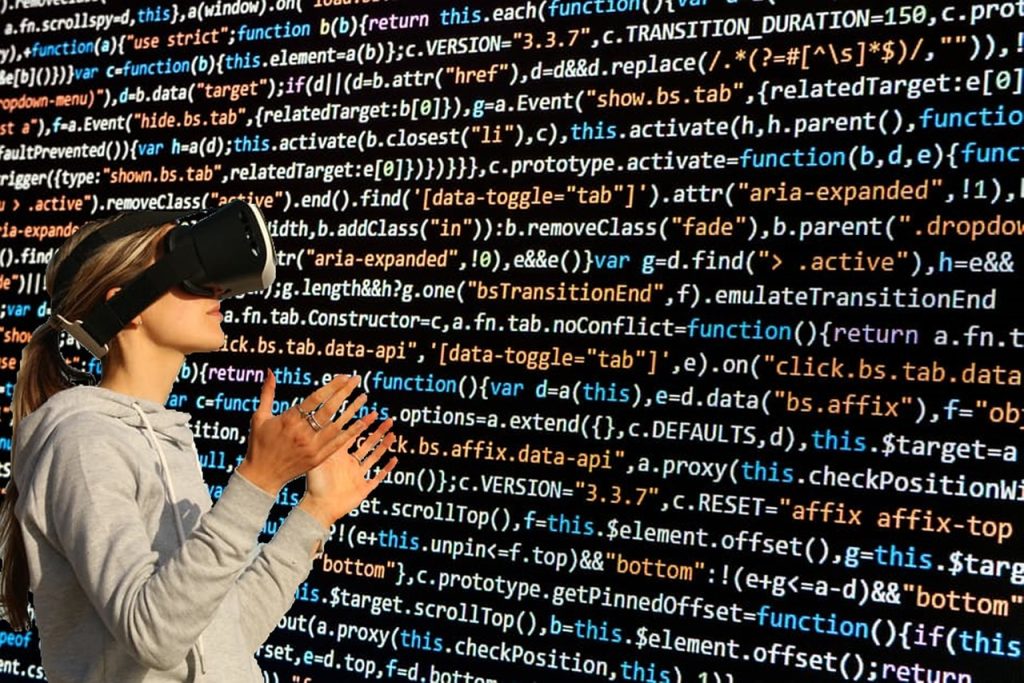The Future of Programming: Emerging Technologies and Trends to Watch in 2023.

The software industry is constantly evolving, with emerging technologies and trends shaping the future of programming. As we approach 2023, it’s important for software developers to stay up-to-date with the latest technologies and trends that will impact the industry in the coming years. In this blog post, we’ll explore five emerging technologies and trends that will shape the future of programming in 2023.
- Artificial Intelligence (AI) Artificial intelligence (AI) is set to revolutionize the software industry in 2023 and beyond. With advances in machine learning, natural language processing and computer vision, AI will enable software developers to create intelligent applications that can learn, reason and adapt to changing environments. From chatbots to self-driving cars, AI will be a key technology in shaping the future of programming.
- Blockchain is a distributed ledger technology that allows for secure, decentralized transactions. In 2023, blockchain will continue to gain traction as a technology for creating secure, tamper-proof applications. From cryptocurrencies to supply chain management, blockchain will enable developers to create applications that are transparent, secure and efficient.
- Internet of Things (IoT) is the network of devices, vehicles and other objects that are embedded with sensors, software and network connectivity. In 2023, IoT will continue to expand, with more devices becoming connected and intelligent. From smart homes to smart cities, IoT will enable developers to create applications that can interact with the physical world in new and innovative ways.
- Progressive web apps (PWA) are web applications that provide an app-like experience on mobile devices. In 2023, PWAs will become more popular, as they offer a cost-effective alternative to native mobile applications. With advances in web technologies such as service workers and web push notifications, PWAs will provide a fast, reliable and engaging user experience.
- Low-Code Development Platforms allow developers to create applications using visual, drag-and-drop interfaces rather than writing code. In 2023, low-code development platforms will become more popular, as they offer a faster and more efficient way to develop applications. With advances in artificial intelligence and machine learning, low-code platforms will also become smarter, allowing developers to create more complex applications with less effort.
- Quantum Computing is a technology that uses quantum-mechanical phenomena to perform calculations. In 2023, quantum computing will become more accessible, enabling developers to create new applications that require vast computational power. With quantum computing, developers will be able to solve complex problems in fields such as cryptography, chemistry and finance.
- Edge computing is a technology that allows for the processing and storage of data closer to where it’s generated. In 2023, edge computing will become more prevalent, enabling developers to create applications that are more responsive and efficient. From smart cities to autonomous vehicles, edge computing will enable developers to create applications that can operate in real-time, even in low-latency environments.
- Cybersecurity will continue to be a critical concern in the software industry in 2023. With the increasing complexity and interconnectedness of software systems, developers will need to focus on creating secure applications that can withstand cyberattacks. From artificial intelligence to blockchain, developers will need to leverage emerging technologies to create secure and resilient applications.
- Cloud-native development is an approach to software development that leverages cloud technologies and services to build and deploy applications. In 2023, cloud-native development will become more prevalent, enabling developers to create scalable and resilient applications that can run on any cloud platform. From microservices to containerization, cloud-native development will enable developers to create applications that can operate in a distributed and dynamic environment.
- DevOps is a software development methodology that focuses on collaboration, communication and automation. In 2023, DevOps will continue to gain momentum, enabling developers to create applications more efficiently and effectively. With advances in machine learning and artificial intelligence, DevOps will become smarter, allowing developers to automate more of the software development lifecycle and improve the speed and efficiency of the development process.
In conclusion, the future of programming is bright, with emerging technologies and trends set to shape the industry in 2023 and beyond. By staying up-to-date with these emerging technologies and trends, software developers can remain competitive and create innovative applications that solve real-world problems. From AI to blockchain, the future of programming is full of exciting possibilities.



